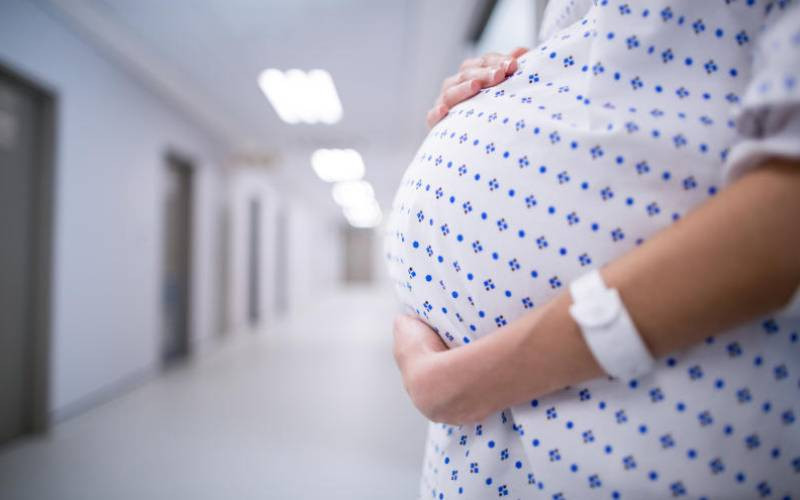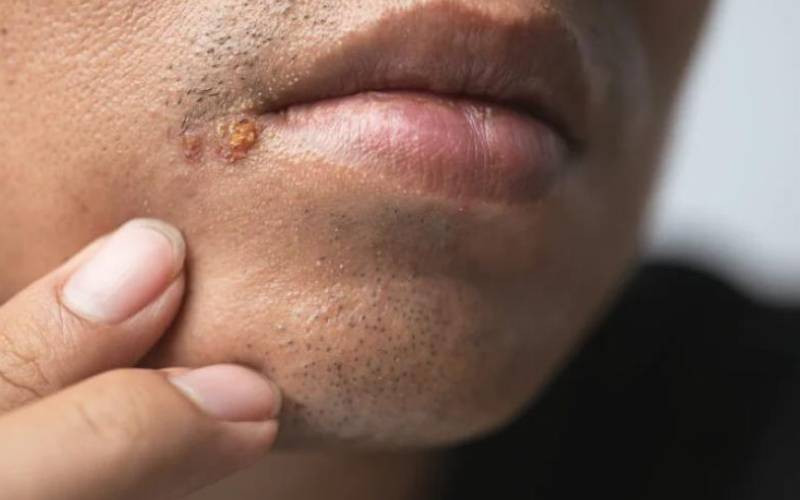
The last few weeks have seen TV host Janet Kanini's story dominate conversations on social media. Four months ago, Janet was diagnosed with Deep Vein Thrombosis (DVT) and put on essential medication. She ended up taking the drugs for over three months instead of the recommended maximum ten days.
Through a post on her Facebook wall, Kenyans learnt that Janet's case of DVT was merely a symptom of a bigger problem: cancer. She had to travel to India to properly understand what was happening to her body now that the medication she was taking seemed to be as effective as a placebo.
Her doctors in Kenya missed it. How? That is a question yet to get an answer.
"My case of DVT has turned out to be a symptom of something more. Hence its stubborn refusal to respond to blood thinner pills and my reliance on Clexane injections," Janet wrote. "So here's what the latest medical reports say: lung cancer. Stage 4, meaning it has spread from the primary lung site into lymph nodes."
To date, except for cervical cancer, there is no one identified cause of cancer. Dr Gladwell Kiarie, an oncologist at Nairobi Hospital, says so far research can only point out risk factors associated with cancer.
"Like radiation, smoking, processed foods and alcohol," she says, "but there is no single cause attributable to tumours."
Kiarie says cancer is largely a mystery. The good news is that a patient can be treated to full remission – back to good health – if the disease is diagnosed early.
Even before she could travel to India for treatment, Catherine Wanjiru, a cancer survivor, had been made to witness her death. She was experiencing convulsions, fits, nose and mouth bleeds. She had been found with leukemia, otherwise known as blood cancer.
"The doctor told me I had six months to live," she recalls. "That discouraged me to the point that I relocated to Rwanda to get away from 'death'".
A dead woman walking. That is exactly how she felt. Her family would move her back to Kenya to face treatment. She was to die in September 2012 but the month passed without anything happening.
"For more than two years, I endured chemotherapy and radiotherapy with not much progress. Until early 2015 when I was told I needed a PET scan done in India because we don't have one in Kenya," Wanjiru recalls.
With money from fundraising, Catherine arrived in New Delhi for treatment. "After a host of tests and evaluations my doctors put me on strict medication. They had an advanced machine for radiotherapy."
A month ago, in September, Catherine arrived back from India with good news: she is on remission and is cancer free. She however needs to travel back to India in three months for another one of her routine check-ups.
With her doctor's decree, she could feel death slither on her skin creepily. Catherine cannot bring herself to describe the joy in her heart with the latest news on her health. She knows it is not always that a cancer patient ends her fight with a smile.
Yet, she is not the only one who has hoped so desperately for India treatment. "India is my only hope now," Jane Frances, a 49-year-old, laments. "It is the closest place where I can find two critical tests – the PET scan (positron emission tomography scan, an imaging test that helps reveal how your tissues and organs are functioning) and BRCA analysis (blood test that uses DNA analysis) – done as I strive for good health."
Jane was diagnosed with breast cancer (stage three) in 2014. She had been visiting different doctors to diagnose an incessant itch under her armpits that had refused to go away.
"The first doctor treated me for infection. But the itch wouldn't go away a year later. That is when I sought the opinion of a radiologist who noticed abnormalities on my left breast. Further tests confirmed that I had breast cancer and it was fast spreading. I needed immediate care."
Cancer is not quite new to Jane. Her father died of prostate cancer. Her grandmother also passed away from complications related to cancer. So did her aunty and an uncle. Then she went through fibroid surgeries in 2006 and 2009 – the latter also saw the removal of ovarian cysts.
But even her flaky medical history could not help in timely diagnosis of her illness.
Hundreds of thousands of shillings (and blood curdling rounds of chemotherapy and radiotherapy later) Jane is yet to get a clean bill of health. Like Catherine, she hopes to raise money from well-wishers to travel to India where she hopes the positive hype emerging from yonder, on the other side of the Indian Ocean, will also work for her.
"Kenyan doctors are competent. We may not have many oncologists but the ones we have are capable to deal with our cancer situation. Most of the time cancer patients can be treated in Kenya but there is a belief that treatment abroad is better," says Dr Kiarie, adding that the strong emotions involved in battling the disease take the better of our patients.
The medic believes that a PET scan in the country will offer a great deal of help for cancer treatment in Kenya. However, she says, Kenyan hospitals have other modes of cancer treatment which are effective and have contributed in healing patients.
Dr Kiarie believes that by 2017 the PET scan technology will touch down on Kenyan soil. "It is technology that is quite complicated and needs other synergistic technologies. Effort has to be made and is being made to invest in technology to make cancer diagnostics and treatment accurate efficient and affordable locally."
But even with such an assurance Jane feels that she can't wait.
"Apparently we don't have this technology in Kenya because we don't have nuclear laws that would enable safe handling of the radioactive isotopes," Janet gushed online.
The equipment is something of a rare species. In Africa, only South Africa, Egypt, Algeria and Morocco have it. India, it seems, offers the PET scan at affordable rates and with elevated levels of success in treatment.
Our calls to Dr Nicholas Muraguri, Director, Medical Services, to shed light on the cancer situation in Kenya went unanswered. So far, many like Jane and Catherine believe the road to effective cancer treatment starts on the runway at JKIA. Flight and accommodation is paid for by fundraising money.
 The Standard Group Plc is a multi-media organization with investments in media platforms spanning newspaper print
operations, television, radio broadcasting, digital and online services. The Standard Group is recognized as a
leading multi-media house in Kenya with a key influence in matters of national and international interest.
The Standard Group Plc is a multi-media organization with investments in media platforms spanning newspaper print
operations, television, radio broadcasting, digital and online services. The Standard Group is recognized as a
leading multi-media house in Kenya with a key influence in matters of national and international interest.










